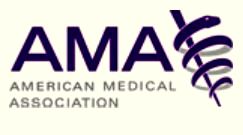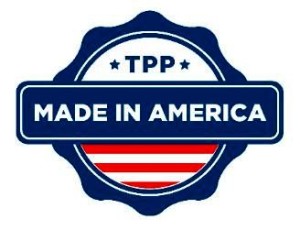- Here’s How Much TV Networks Would Miss All Those Viagra Ads (thestreet.com)
Sick of watching those scary, sad drug ads during the the game? So is the American Medical Association…The AMA's declaration that it would seek curbs on the ability of pharmaceutical companies to market prescription drugs… The Tuesday vote by the AMA, one of the world's largest medical trade groups, to lobby Congress as well as the Food and Drug Administration could all but eliminate a key source of ad revenue for network TV companies, including 21st Century Fox , CBS and Disney, already pressured by the success of streaming services led by Netflix, Amazon Prime and Alphabet's YouTube…It could also force changes to the fundamental marketing model of Big Pharma, which commands its own immense lobby. While pharmaceutical companies have lines of lobbyists to call on, so does the American Medical Association…"It's a large and powerful group,"…"A change like this would be a long process…and there would be freedom of speech issues, but it could certainly have an impact down the road."…Direct-to-consumer ads for drugs -- which are illegal in most Western countries -- are extremely popular in the U.S. Advertising dollars spent by pharmaceutical companies have increased 30% since 2013 to $4.5 billion domestically...
- Drug makers kept many clinical trial results a secret: study (pharmalot.com)
When it comes to disclosing clinical trial data, some drug makers are still keeping secrets, according to a new study…Thirty-five percent of all trial results for 15 drugs that were approved in 2012 by the Food and Drug Administration were not publicly disclosed. And nearly 30 percent of the trials conducted for those drugs failed to meet legal disclosure requirements…“This confirms that pharmaceutical companies often fall below legal and ethical standards,”…The findings come amid growing clamor from academics and consumer groups to press drug and device makers to release trial data. If research is not published or reported in accessible registries, physicians and patients are prevented from having a complete picture of the risks and benefits of medicines…Such concerns have been heightened following various safety scandals that revealed trial data for some products was never fully published or disclosed. A few notable examples include…Vioxx.. and…Paxil…Over the past year, regulators in the US and Europe responded to concerns by releasing new rules designed to widen access. The World Health Organization has released a new position statement calling for companies to publish all research studies…Sense About Science, a UK nonprofit that launched the AllTrials campaign to widen access to data, is working with 85 asset managers and pension funds to assess steps taken by drug makers to provide trial information…
- Regenerative Medicine: Could This Be Healthcare’s Saving Grace? (forbes.com)
Regenerative medicine is one of the fastest growing biomedical industries in the world because patients are being cured of diseases that were once incurable…represents a new paradigm in human health because the vast majority of treatments for chronic and life-threatening diseases focus on treating the symptoms, not curing the disease…there are few therapies in use today capable of curing or significantly changing the course of a disease. New regenerative medicine is changing this by engineering, growing, and regenerating tissues and organs using biological processes similar to those normally used in humans…Cell therapy makes up over 60% of the regenerative medicine market…Pharmaceutical companies are building relationships with innovating regenerative medicine companies… Transnational supply-side economics is driving the market; there is low regulation and multiple offerings for numerous conditions, with some being offered to treat life-threatening diseases. Regenerative medicine has the potential to ultimately change the way medicine is practiced throughout the world.
- Chinese hackers said to target U.S. tech and pharma companies (fiercepharmaasia.com)
Chinese hackers linked to the mainland government attempted to gain entry into computer systems at 7 companies including two unnamed pharmaceutical companies, according to a U.S. cybersecurity researcher…the attacks began on Sept. 26, but were ultimately unsuccessful. News of the attacks came a day after President Barack Obama and Chinese President Xi Jinping had agreed to stop any government attempts to penetrate corporate networks to support their respective domestic industries… Pharmaceutical companies are a natural target for hackers looking to help their clients or employers shave years and billions of dollars off the time and expense of creating modern drugs.
- Physicians call for fairness in drug prices, availability (ama-assn.org)
In response to increasing drug costs impacting patient access to needed medications, physicians voted...to convene a task force and launch an advocacy campaign to drive solutions and help make prescription drugs more affordable. Physicians also are calling for greater competition in the pharmaceutical industry and transparency in prescription drug prices and costs… The new policy calls for the AMA to generate an advocacy campaign to engage physicians and patients in local and national advocacy initiatives to bring attention to the rising price of prescription drugs and put forth solutions to make them more affordable for all patients…Actions called for in the new policy include:
- Support legislation to shorten the exclusivity period for biologics.
- Encourage actions by federal regulators to limit anticompetitive behavior by pharmaceutical companies attempting to reduce competition from generic manufacturers through manipulation of patent protections and abuse of regulatory exclusivity incentives.
- Encourage prescription drug price and cost transparency among pharmaceutical companies, pharmacy benefit managers and health insurance companies, which will help patients, physicians and other stakeholders understand how drug manufacturers set prices, and the prescription drug tiering and cost-sharing requirements of health plans.
- Monitor pharmaceutical company mergers and acquisitions in the pharmaceutical industry.
- Support a balance between incentives for innovation and efforts to reduce regulatory and statutory barriers to competition as the patent system is evaluated and potentially reformed.
- CDC is right to limit opioids. Don’t let pharma manipulate the process (statnews.com)
…Americans overdose and die after taking opioid painkillers...people abuse or misuse the drugs…addictions and deaths mount…authorities are struggling to cope…State lawmakers are introducing bills to restrict prescribing…Food and Drug Administration is pushing pharmaceutical companies to develop more tamper-resistant products…the most sweeping initiative comes from the Centers for Disease Control and Prevention, which has prepared preliminary prescribing guidelines for primary care physicians…call on doctors to prescribe opioids only after other therapies have failed…there is considerable opposition to the guidelines…critics…say the CDC guideline process was flawed and, as a result, some patients will be denied much-needed pain relief.
- Drug giants pay $54M to settle charges they charged too much for drugs (bizjournals.com)
AstraZeneca and Cephalon — have agreed to pay a total of $54 million to federal and state governments to settle allegations that they shortchanged Medicaid programs on rebates for drugs… The allegations involve rebates owed to Medicare which are negotiated with pharmaceutical companies, which are often touted as a main reason that the cost of any drug is actually less than the published price…in a lawsuit against the two drug companies claiming that they violated so-called “false claims acts” by manipulating how they reported the prices of drugs in order to decrease rebates owed to state Medicaid programs… lawsuit claimed that AstraZeneca and Cephalon falsely treated certain fees paid to wholesalers as “discounts,” improperly lowering the average prices reported and they amount they paid…
- Why Valeant Is an Unusual Pharmaceutical Ethics Case (bloomberg.com)
Greenhill & Co. CEO Scott Bok discusses the ethics of health care and pharmaceutical companies.
- Final text of TPP fails to allay critics of drug agreement (fiercepharmaasia.com)The Trans-Pacific Partnership (text) (ustr.gov)
Thousands of pages of the final text of the 12-nation Trans-Pacific Partnership trade deal were released by the White House…in hopes of persuading critics to come out in favor of it. But those hopes were dashed when critics from all walks of the economy in the U.S. and elsewhere criticized the provisions…critics ranged from Ford to environmental groups to U.S. nurses and Malaysian officials concerned about potential cost increases on lifesaving drugs that will affect patients who could suffer when lower-cost generics take years longer to come on to the market…National Nurses United union said in a statement that the TPP "is even worse than prior reports had predicted" and said monopoly pricing protections for pharmaceutical companies "could be a death sentence for countless patients in need of affordable medications around the world."...
- State of Nevada makes $3.8 million available to School of Medicine for research projects to improve women’s health (medicine.nevada.edu)
Through a settlement brokered by the State of Nevada Attorney General's Office, approximately $3.8 million is available to the University of Nevada School of Medicine for research projects aimed at improving women's health in Nevada…The State of Nevada obtained the settlement with pharmaceutical companies Wyeth, Pfizer and Pharmacia & Upjohn relating to claims regarding postmenopausal hormone therapy products…The funds will be distributed by the Attorney General's Office over a five-year period ending in 2019, with half the available research funds going to School of Medicine faculty in Reno and Las Vegas and the other half going to University Medical Center of Southern Nevada.







